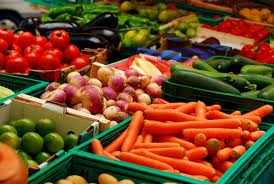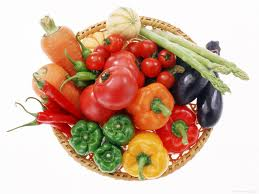You might have come across the word ‘organic’ quite often in supermarket and departmental stores and wondered what it is all about. Organic foods are gradually gaining acceptance and popularity among consumers, mainly because of their health benefits. They are different from their conventional counterparts in more ways than one. They sometimes look a bit different from conventionally grown foods and vary in taste and colour as well. In spite of the fact that organic vegetables are costlier than conventional vegetables, they are now preferred by many people due to their immense health benefits.
Organic farming refers to certain biological and cultural farming practices that reduce pollution in the environment, conserve soil, water and biodiversity and help to maintain ecological balance. It is a holistic approach to farming for the overall benefit and conservation of the environment. Instead of using chemical fertilisers and synthetic pesticides, organic farmers use naturally extracted fertilisers and pesticides. Hand weeding, mulching and crop rotating are some methods used in organic farming. Whereas conventional farming relies on growth hormones and antibiotics to accelerate growth of the livestock and prevent diseases, organic farming uses techniques like balanced diet, rotational grazing and organic feeding. Moreover, it has great health benefits too.
When it comes to making a choice between conventional and organic vegetables, many studies have indicated that because no chemical pesticides are used, organic vegetables retain their nutritional value much more than the conventional ones. Not only do organic vegetables have more nutrients like vitamins, proteins and minerals, but they also contain higher levels of salicylic acid that helps prevent bowel cancer. Organic vegetables are grown under strict conditions and regulations, banning the use of preservatives and additives which make them a healthier option. This makes them naturally fresh.
Given below are some reasons why you should include organic vegetables in your diet-
- Organic farming promotes healthy soil and prevents soil erosion. Dense vegetation and weed cover implies healthy soil with considerable amount of soil microbes and pest-eating bacteria. Healthy soil results in production of healthy fruits and vegetables. Moreover soil fertility is also increased overtime.
- Organic farmers work in collaboration with the environment. They try to collect and preserve seeds to grow many different varieties of fruits and vegetables.
- Organic farming does help in water conservation and prevent its pollution. It discards nitrogen leaching that can pollute the water.
- Health benefits of organic vegetables are huge. Since no chemical pesticides are used in this type of farming, there is no health risk involved. They are fresher and healthier. Exposure to chemical pesticides can create health risks, especially in infants and pregnant women.
- Organic farming uses less energy that is great for the environment.
- When compared to processed foods, organic foods have a much higher nutritional value. Organic foods are always fresh. The only downside to it is that they spoil fast. To prevent them from spoiling, consume them within a few days of buying.
- Organic farming sometimes use forage crops that go a long way in maintaining the ecosystem.
- Global climate also benefits from organic farming which retains good quantities of carbon in the soil.
- Organic farming preserves the overall flora and fauna of the earth. By preventing chemicals to mix into the soil, water and air, it conserves the environment to a large extent. This in turn lets us live healthy and long.
Health risks are becoming an increasing concern among consumers. Synthetic fertilisers and insecticides can cause serious damage to our heath including headaches, weakened immune system and even birth defects (as indicated by certain studies). Some fruits and vegetables like apples, cucumbers, grapes, potatoes, spinach and others have been known to contain high levels of pesticides when traditionally grown. In that case, they should always be consumed when grown organically.
Pesticide residues are found to be much higher in conventionally grown vegetables. Washing does help, but traces can still remain. Since no pesticides are used in growing organic vegetables, plants produce rich antioxidants and vitamins (together called phytochemicals) that actually create a greater resistance to weeds and bugs. The other thing to worry about is loss of nutrients. Chemical fertilisers accelerate rapid growth of the vegetables, in turn robbing them of necessary minerals, vitamins and iron. Studies have been conducted which indicate that organic produce has almost 40% higher nutritional value than conventional produce. The higher the nutrients, the healthier it is. That is the reason why so many are incorporating organic foods in their diet.
It is also important to conserve and protect our environment from pollution and chemicals. Organic farming implements a systematic approach to wildlife and environment conservation. Groundwater pollutants are reduced, soil is strengthened and vegetation is increased. Since organic vegetables are quite costly, it may not always be possible to buy them every week. When shopping, try to incorporate a mix of organic and traditionally grown produce. Some local markets do sell organic produce at lower prices. Go to your local markets and ask for organic fruits and vegetables. When buying from supermarkets, do read the labels carefully before buying. Switch to organic today!


Leave a Reply